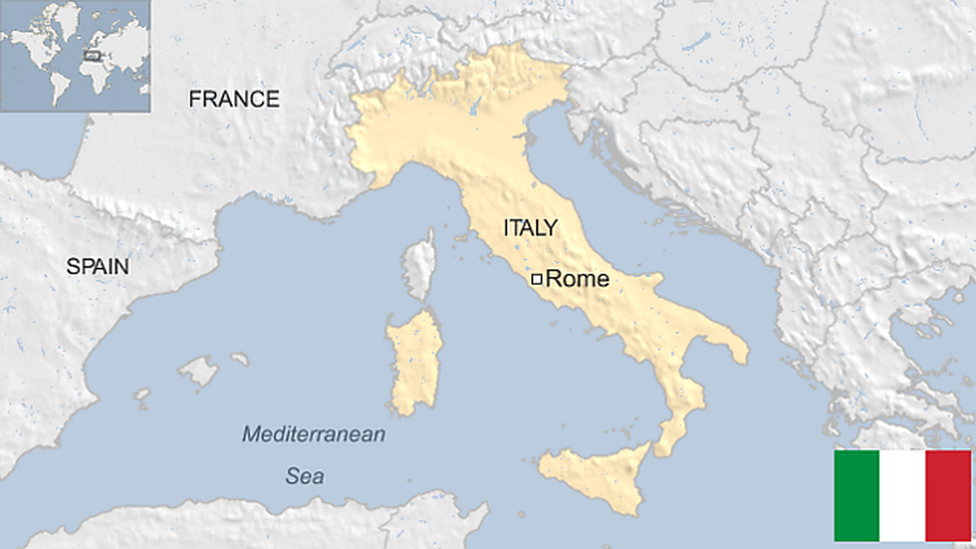Austria-Italy passport row tests Europe's populist allies
- Published
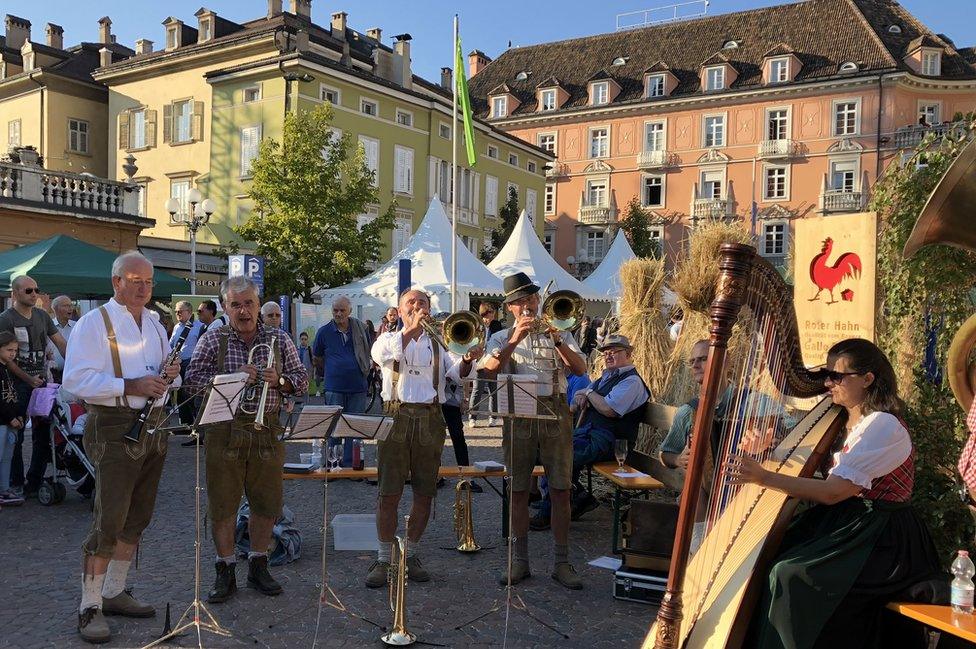
Bolzano: Austrian folk music, but it's northern Italy
Austria and Italy have become embroiled in a dispute over dual citizenship in Italy's border region of South Tyrol.
It is a row with added intensity because it involves two nationalist parties that see eye-to-eye on many of Europe's pressing issues. But not when it comes to this mainly German-speaking province.
Austria's far-right Freedom Party, now in government with the conservatives in Vienna, wants to allow native German speakers here to have Austrian nationality as well as Italian. But the idea is strongly opposed by Italy.
Italy's populist right-wing Interior Minister Matteo Salvini, normally a close ally of Austria's Freedom Party, has made it clear that his government will not allow it.
Identity here is complicated.
South Tyrol is holding a regional election on Sunday, to appoint local councillors.
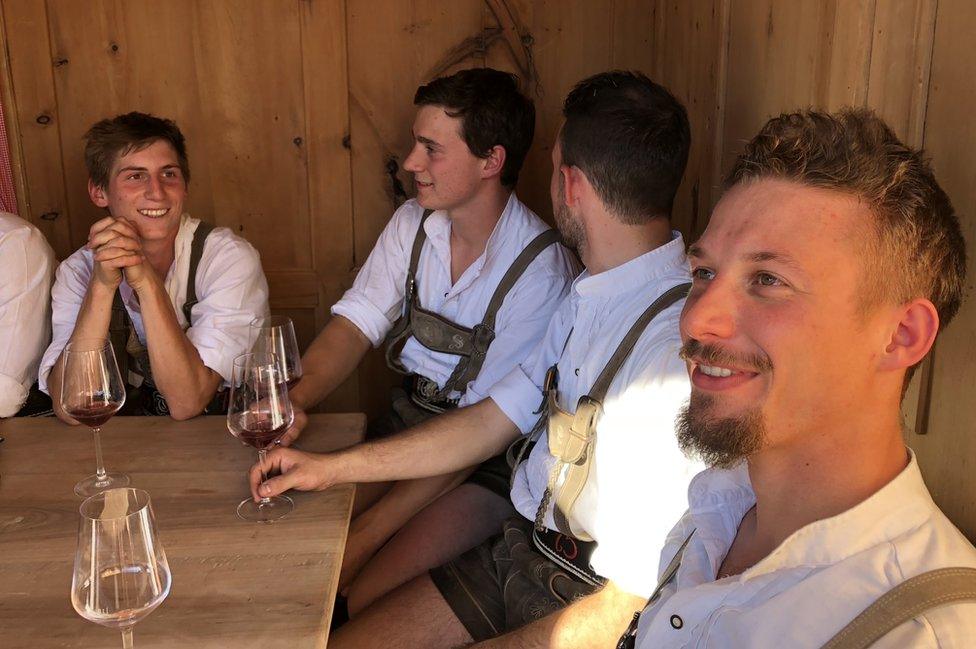
German-speaking South Tyrolean men wear Lederhosen with pride
Young men in Lederhosen slap their thighs and stamp their feet in a traditional Schuhplattler dance at a harvest festival in Bolzano's main square. Families eating apple strudel watch from a nearby cafe.
It all looks and sounds incredibly Austrian. But this is Italy and this province is known in Italian as Alto Adige.
It used to be part of the Austrian Habsburg Empire until the end of World War One, when it was annexed to Italy.
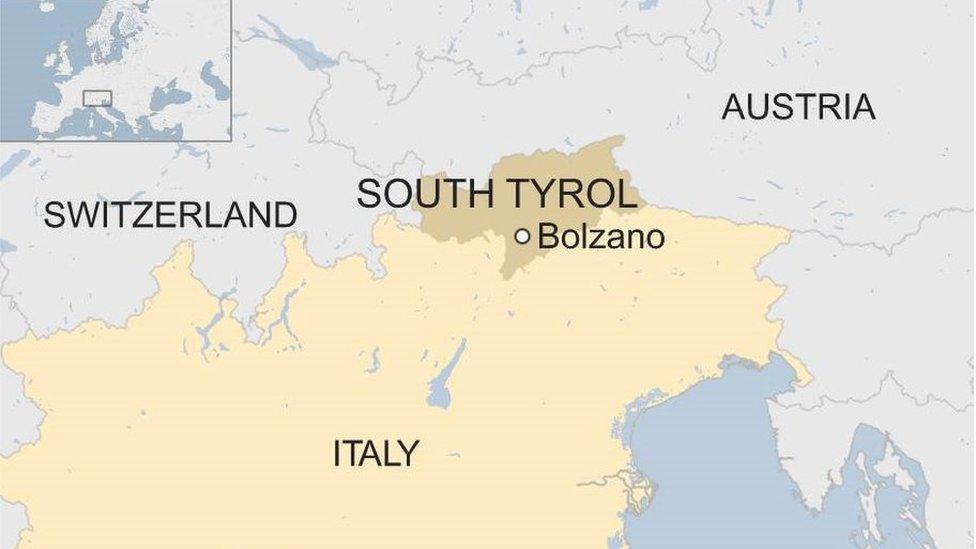
Right now Philipp and his friend Simon have Italian nationality but, if Austria has its way, they may soon be able to get Austrian citizenship too. Simon says he would take it if he could.
"If unforeseen things happen in Europe in the next 20 or 30 years, it could be an advantage to be both Austrian and Italian - if it's not too expensive," he said.
But Philipp isn't sure.
"There are a lot more obligations with dual citizenship. In Italy they got rid of military service. In Austria you still have to do it. Not many people think about that here, what the consequences could be."
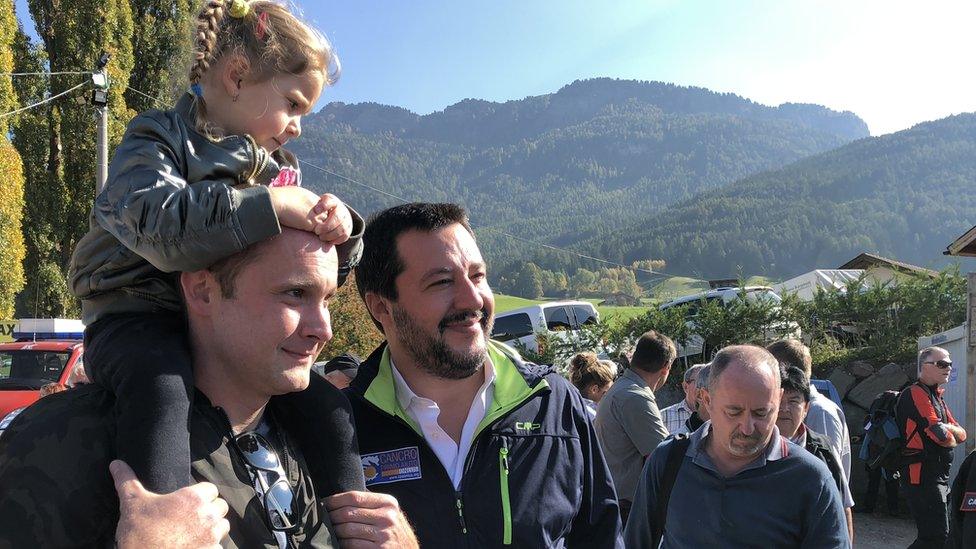
Italy's Interior Minister Matteo Salvini (C) has been campaigning in South Tyrol
Later that day, I attended a choir festival with the Governor of South Tyrol, Arno Kompatscher.
Schoolchildren sang an Italian World War One song from 1917, shortly before the province became part of Italy.
South Tyrol was a success story, the governor argued: a place that had overcome sometimes violent ethnic conflict between the German and Italian groups.
"They look at us from all over the world, because in other places it didn't work like this, " he said.
"We were able to manage it, to have a situation with more cultural and linguistic groups living together, where before there was a war and an ethnic conflict. And now we are living together with strong identities. We have spaghetti and Knödel (dumplings), we can try to use the best of each culture, secure in our own identities."
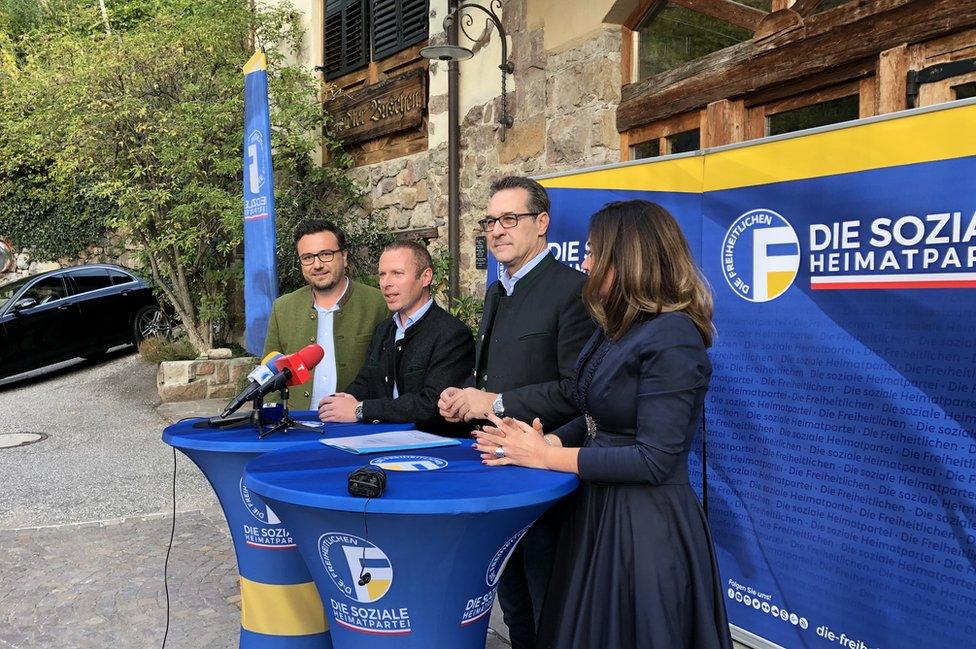
Austrian Vice-Chancellor Strache (2nd from R) spreads his nationalist views in Bolzano
But some in South Tyrol fear that that balance could be upset if Austria starts handing out passports.
The idea has been championed by the Austrian Vice-Chancellor Heinz-Christian Strache, from the Freedom Party.
Austria doesn't usually allow dual citizenship, but Mr Strache wants to make an exception for German and Ladin speakers in South Tyrol - but not for Italian speakers.
On a recent visit to Bolzano, he said he believed that "the dual passports would mean a lot for many people in South Tyrol, a way of documenting an identity that they already feel".
But Francesco Palermo, a professor of comparative constitutional law, says that the plans, which still have to be worked out, could be discriminatory under international law.
"Austria does not recognise dual citizenship as a rule, so either it changes the law in its entirety or it will always have to find a reasonable justification why this exception can apply only for South Tyroleans," he said.
He said it would be complicated to decide the criteria as to who would qualify for Austrian citizenship. "If it is ancestry, the question is: why only certain successors of Austrian citizens during the Habsburg time and not others?"
Barbara Varesco, a German-speaking journalist at the Dolomiti newspaper, says the proposals could end up dividing communities.
"The Italians don't like it. And I'm also concerned that it will divide the German communities. There will be a kind of competition to see who will be the better Tyrolean. Already with an Italian passport, you can do almost everything, so it is not that you need an Austrian passport. I would like a European passport for all European citizens."
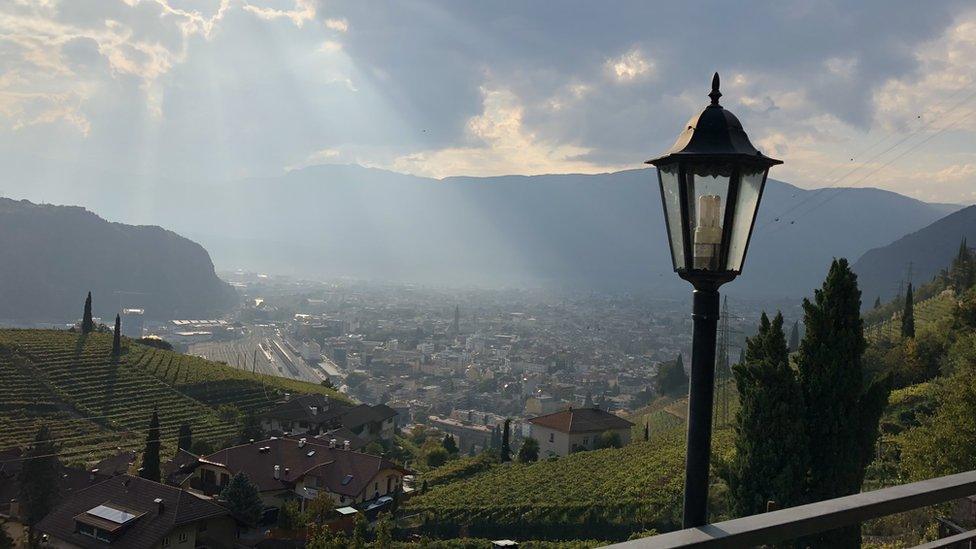
Vineyards around Bolzano - it is a prosperous Alpine region
Arno Kompatscher says polls suggest that about 17% would definitely like dual Italian-Austrian citizenship. "Another 35% say it would be nice, but not at any cost. And around 45% say 'we don't want to have it'."
The obstacles to Austria's plans aren't just legal. Matteo Salvini has made his objections clear to dual citizenship for German speakers.
Noemi, a young Italian who said she was a fan of Mr Salvini, told me people in South Tyrol should stick to one nationality.
"I think if you are Italian, you have to be Italian. It's a sense of belonging. I belong to Italy, so I want my Italian passport."
- Published24 September 2019
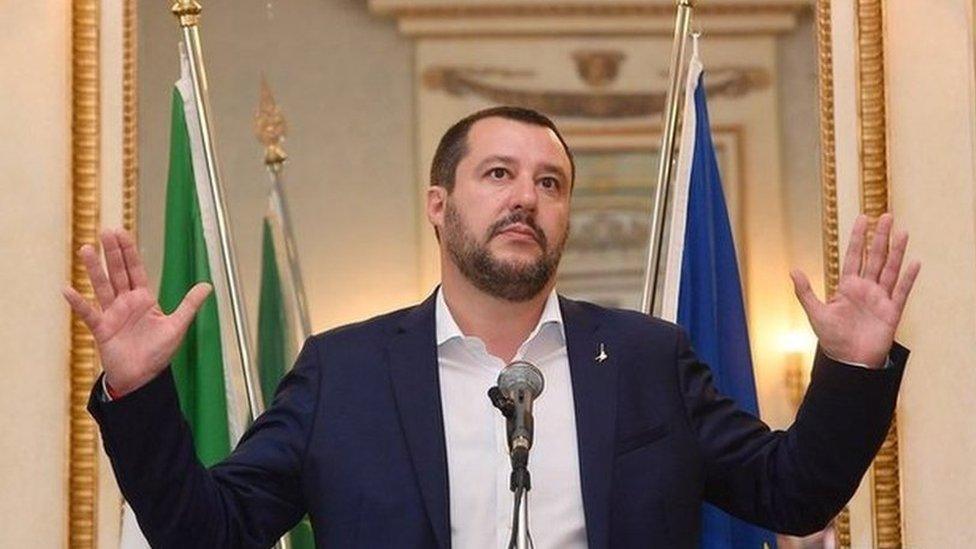
- Published16 December 2017
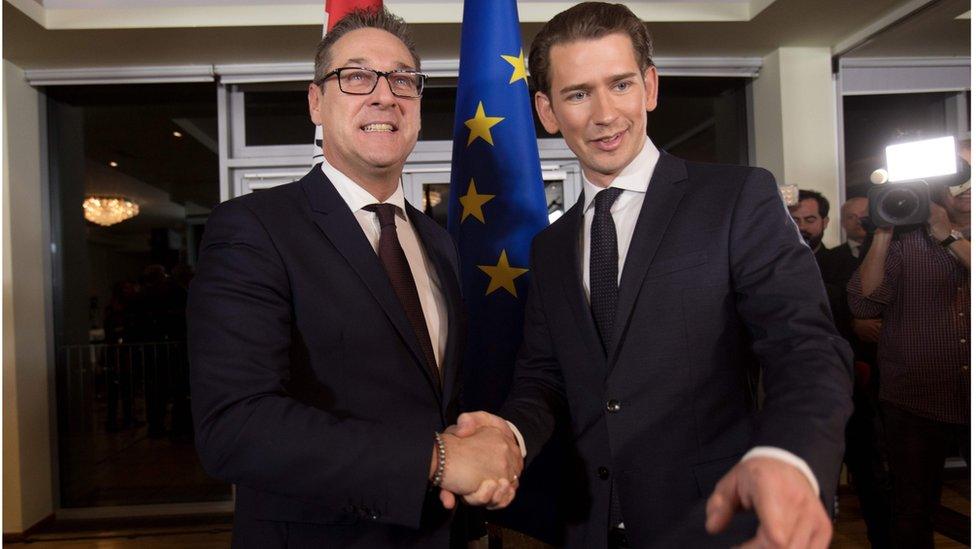
- Published1 May 2017
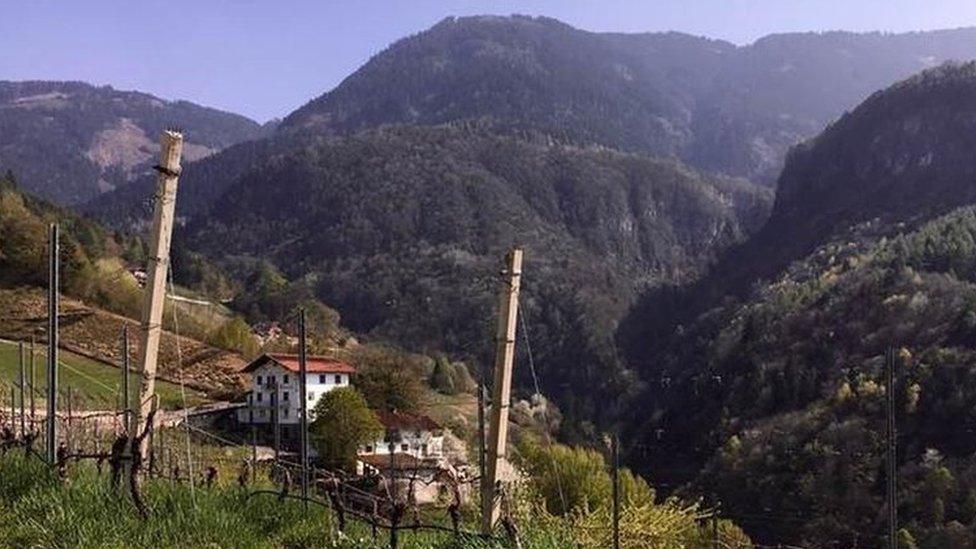
- Published14 April 2023
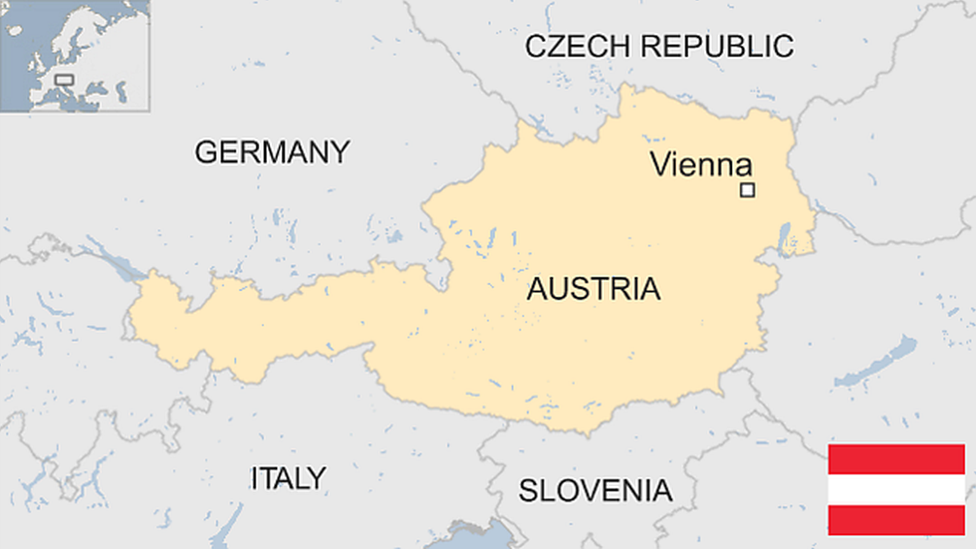
- Published4 October 2023
